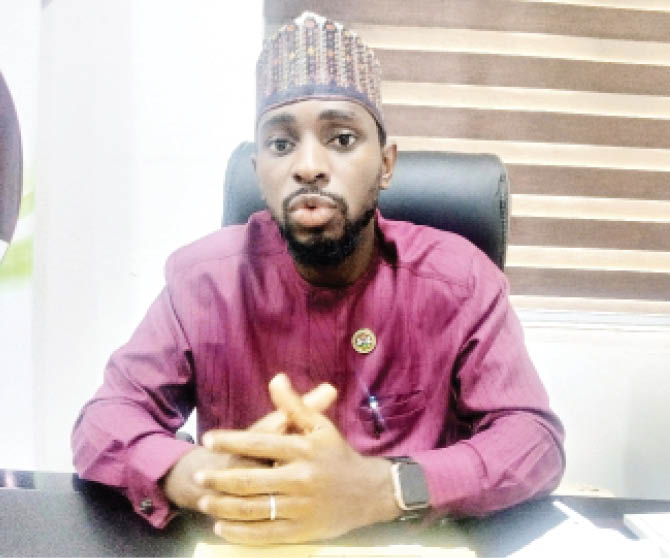Only 10% of Kwara farmers have gotten interventions – Kwara govt
AbdulQawiy Olododo is the Technical Assistant on Agriculture to Governor AbdulRahman AbdulRazaq. In this interview, he speaks on accusation by some farmers that most of government’s interventions have been hijacked by civil servants, who now masquerade as political farmers, among others. Excerpts How has the government impacted the agricultural sector in the state? We […]

AbdulQawiy Olododo
AbdulQawiy Olododo is the Technical Assistant on Agriculture to Governor AbdulRahman AbdulRazaq. In this interview, he speaks on accusation by some farmers that most of government’s interventions have been hijacked by civil servants, who now masquerade as political farmers, among others. Excerpts
How has the government impacted the agricultural sector in the state?
We have done quite a lot to put agriculture in the front burner of development and ensure farmers are fully brought on board. The first thing we did was to draw up a 10-year transformation plan from which we are beginning to churn out different programs. Prior that, the governor in 2019 paid the counterpart funding for RAM in order to ensure that rural roads are open to the urban centres for farmers to easily move their produce. In 2020, despite being a COVID year, we assisted about 10,000 farmers to cultivate 5,300 hectares of land through the tractor leasing program with 50 tractors at a subsidized rate of N10,000. Same year, we went into partnership with OCP Africa to provide input for 3000 rice farmers in Edu Local Government Area to produce paddy rice and also open up the livestock farmers to different markets for dairy development by bringing back WAMCO. Between 2020 and early 2021, four milk collection centres were built located at Ajase Ipo, Dogo, Afon and Eiyenkorin with a capacity to take 21,000 litres of milk daily. At N240 per litre, we can do the mathematics.
Farmers raise alarm as high cost of diesel cripples catfish production
Jigawa engages mobile vets to assist cattle breeders
Despite these interventions, there are still tales of government not doing enough
One can’t shy away from the current reality we’re facing which is minimal resources. Of course, Kwara State is predominantly an agrarian state and we haven’t covered everyone. In our last digitization, we have been able to enumerate 100,000 farmers with about 10,000 covered, which is 10 per cent. We started from a point where we didn’t have a single tractor or bulldozer to having 15 and two respectively at very subsidized rates. At the open market, bulldozer costs N140,000 while government is taking N70,000. Tractor is N55,000 per operation but being leased at N25,000. Last year, around 4,000 hectares of land were cultivated for farmers at a subsidized rate and 2,050 this year wet season between April and June, the least local government having 80 hectares. The government also partnered with a HARVEST, a woman-centred NGO, to train about 1,000 women in agriculture across the state and gave them inputs. We know there are still a lot to be done, but what is evident is that we are supporting farmers every year.
Some farmers have alleged that most of the people that have benefitted from these interventions are not genuine but ‘political farmers’
Our people need to understand that they can’t continue with this attitude of being Oliver Twist. Because they haven’t benefitted from a particular scheme, they’ll claim that beneficiaries are politicians. The essence of our data enumeration exercise for farmers was to weed out those who are not genuine farmers. In 2020, we did a scheme that quite a number of farmers benefited from and some did not, same as 2021. Similar thing happened this year.
Last year, it was 50 per cent subsidy on inputs while it was at no cost this year because we know the impact the global economy is having on even farmers. There is a particular association that I wouldn’t like to mention the name that my office partnered with Harvest to train its members and support them with inputs to cultivate. But because they didn’t benefit from the first three of the FADAMA programme, which is a two-year programme, they felt disgruntled. However, some of them had benefited from other schemes before while others didn’t. We have thousands of farmers in Kwara State. It’s very distasteful to accuse the government of such because they didn’t benefit.
Stakeholders in cashew production have lamented lack of proper regulation of market to serve as a huge revenue base to the state
These are parts of what we have identified and are aware of. We are building on our structure; we’re starting from ground zero and we can’t attack all the problems we identified at once. We can’t rush into cashew production when we still have issues with even producing staple foods we eat daily like rice, maize. We must first address the basic needs of our farmers which need financial commitment. It is a gradual process.
Farmers have expressed preference for grants to loans as support from the government, what is your take on this?
This administration has not given any farmer any loan. What we have been doing is supporting them with inputs as we do not support the system of giving out money to cronies.
What is the government doing to address the issue of access to land in urban areas for farmers?
Access to farmland has always been a challenge for every state. The sole purpose of purchasing two bulldozers was to open up more lands to be accessible to our people. At Adanla community in Ifelodun Local Government Area, about 500 hectares were cleared last year and youths in that community were the ones benefitting now.
